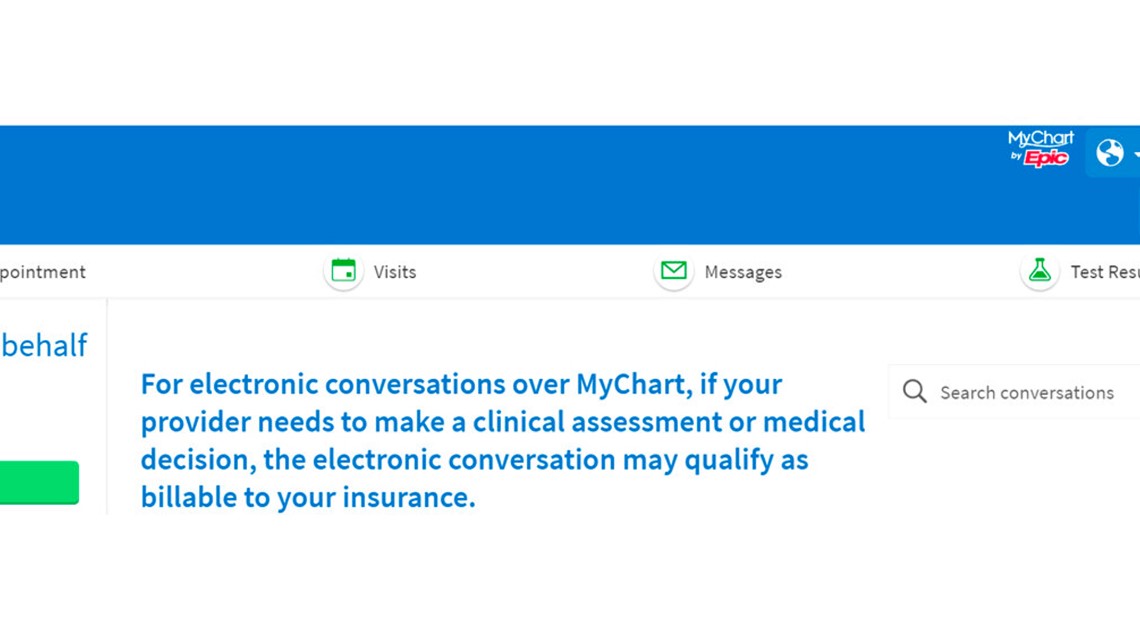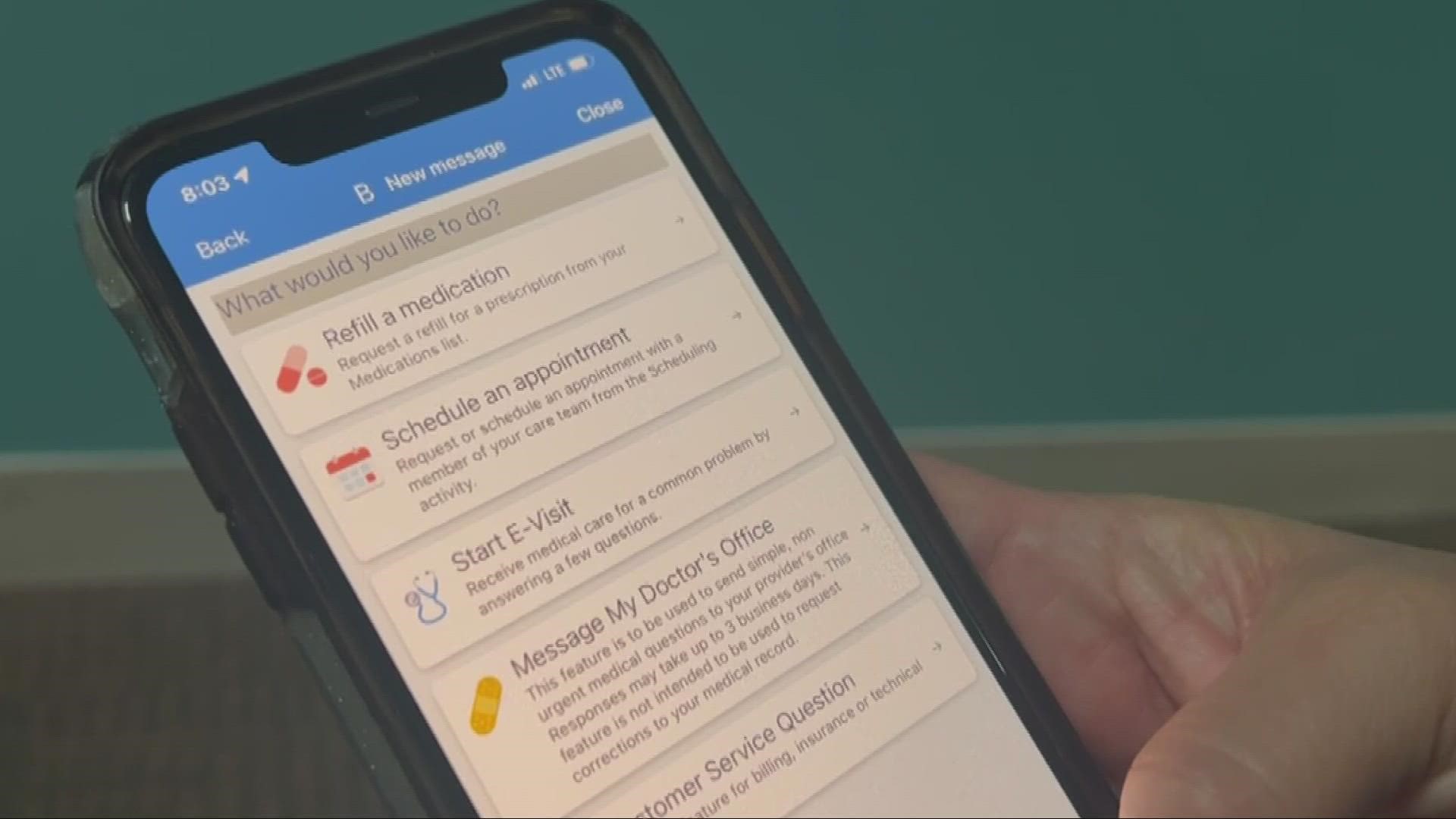WASHINGTON — The next time you message your doctor to ask about a pesky cough or an itchy rash, you may want to check your bank account first — you could get a bill for the question.
Hospital systems around the country are rolling out fees for some messages that patients send to physicians, who they say are spending an increasing amount of time poring over online queries, some so complex that they require the level of medical expertise normally dispensed during an office visit.
Patient advocates, however, worry these new fees may deter people from reaching out to their doctor and that they add another layer of complexity to the U.S. health care system’s already opaque billing process.
“This is a barrier that denies access and will result in hesitancy or fear to communicate and potentially harm patients with lower quality of care and outcomes at a much higher cost,” said Cynthia Fisher, the founder of Patient Rights Advocate, a Massachusetts-based nonprofit that pushes for hospital price transparency.
The explosion of telehealth over the last three years — driven by the COVID-19 outbreak and relaxed federal regulations for online care — prompted many doctors to adopt more robust telecommunication with their patients. Consultations that once happened in an office were converted to computer or smart phone visits. And health care systems invited patients to use new online portals to message their doctors with a question at any time, American Medical Association president Jack Resneck Jr. told The Associated Press.
“When people figured out this is cool and could improve care, you saw hospitals and practice groups saying to patients, welcome to your portal ... you can ping your physician with questions if you want,” Resneck said. “We found ourselves as physicians getting dozens and dozens of these a day and not having time built in to do that work.”


The charges vary for each patient and hospital system, with messages costing as little as $3 for Medicare patients to as much $160 for the uninsured. In some cases, the final bill depends on how much time the doctor spends responding.
Health systems that have introduced these new policies, many in recent months, say they automatically alert patients that they may be charged when they message their doctor through online portals, such as MyChart, an online system that many organizations now use for scheduling appointments or releasing test results to patients.
Under new billing rules, doctors are permitted to bill Medicare for as little as 5 minutes of time spent on an online message in a seven-day period, according to the Centers for Medicaid and Medicare.
Doctors need to be paid for the time they spend doling out expert medical advice — even over messages, said University of Chicago health economist Katherine Baicker. But it's also important that hospital systems are transparent about what patients can expect to pay as they roll out these new charges, she added.
“Co-pays do not accomplish anything when they are not clear for patients ahead of time,” Baicker said.
Physicians at University of California San Francisco Health field roughly 900,000 email threads — 3 million total messages — in a year, according to Jess Berthold, a spokesperson for the system.
The hospital announced in November 2021 it would start charging for some of those messages, after noting a spike during the pandemic. During a year’s time, 1.4% of email threads, or about 13,000, have resulted in a bill.
Only certain messages trigger a charge. Patients won’t be charged, for example, for prescription refills, scheduling an appointment, asking a follow-up question about an office visit within the last seven days, or if their doctor advises they should schedule a visit in response.
What types of messages will prompt a bill? Sending your doctor a picture of a new rash, asking for a form to be filled out or requesting a change in medication.
Navigating how much you might end up owing can be trickier.
At UCSF, patients on Medicaid who message their doctor won’t have any out-of-pocket costs, and those on traditional Medicare may have to pay $3 to $6. Patients on private insurance will be billed a co-pay — typically about $20 — as will patients on Medicare Advantage, the private insurance plans for Medicare.
Cleveland Clinic in Ohio, the latest major hospital system to announce charges for online messages, rolled out similar guidelines late last month, with messages costing as much as $50 for those on private insurance. And at Northwestern Medicine in Chicago, which charges $35 for some messages, fewer than 1% of those correspondences resulted in a bill, spokesman Christopher King said.
All of those systems use the online portal MyChart. Epic, the privately owned software company that runs MyChart, does not track which health systems charge patients for messages, spokeswoman Barb Herandez said in an email. The company did not answer questions about whether it receives a share of the fees from those charges.
Giving patients advice online can save a patient time or money in the long run, hospital systems argue. If the doctor can answer a patient’s question over email, the patient can cut out wait times for an appointment and avoid taking time off work to go to the doctor's office.
Plus, some patients simply prefer the convenience of getting a quick answer from the doctor on an app, Berthold of UCSF added.
“If patients can have access to a doctor right when questions or concerns arise, they can seek care more quickly and be treated more quickly,” Berthold said.
But Fisher argues it could have the opposite effect with patients thinking twice before they message a doctor. Instead, some people may turn to free, unreliable advice online.
“It becomes a slippery slope, and that slippery slope is not in favor of the patient,” she said.

